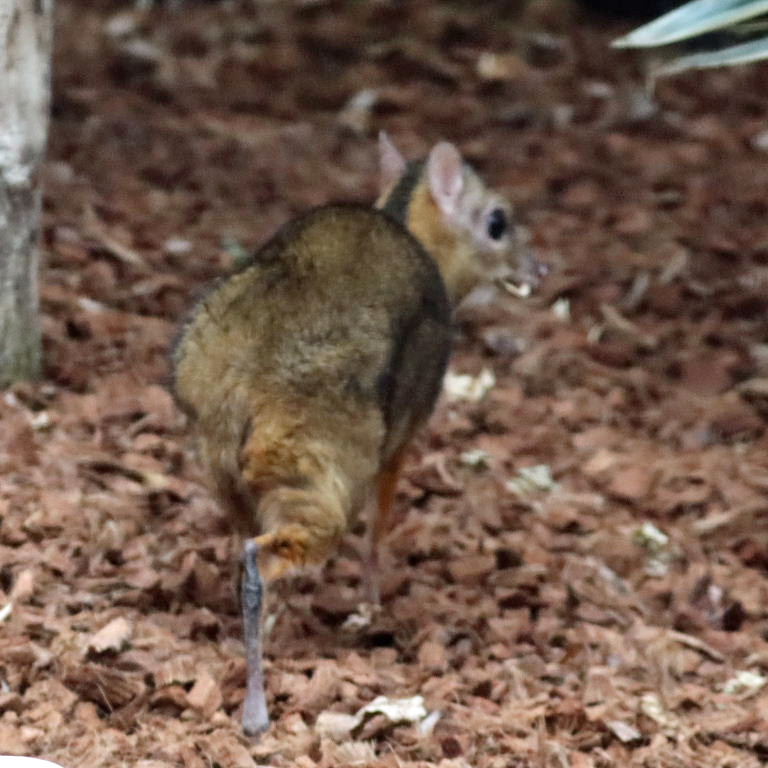Java Mouse-deer Tragulus javanicus



Mouse-deer (also Mouse Deer and Chevrotain) are very small deer-like animals native to Southeast Asia
(and related to Chevrotains of India/Sri Lanka and Africa). In 2004 the Lesser Mouse-deer, also called Malay Lesser Mouse-deer and
Javan Chevrotain, a shy, crespuscular mouse-deer, was split into 3 species:
"javanicus" was then applied only to the mouse-deer native to tropical rain forests of Java, Indonesia, renamed
the Java Mouse-deer.



Mouse-deer (and Chevrotains) are primitive deer-like animals which don't have antlers or horns but
both male and female have extended canine teeth like small tusks, much longer in the male. They are mainly nocturnal and
solitary or paired and are among the world's smallest hoofed mammals with a rabbit-sized body and stick-thin, short legs.



